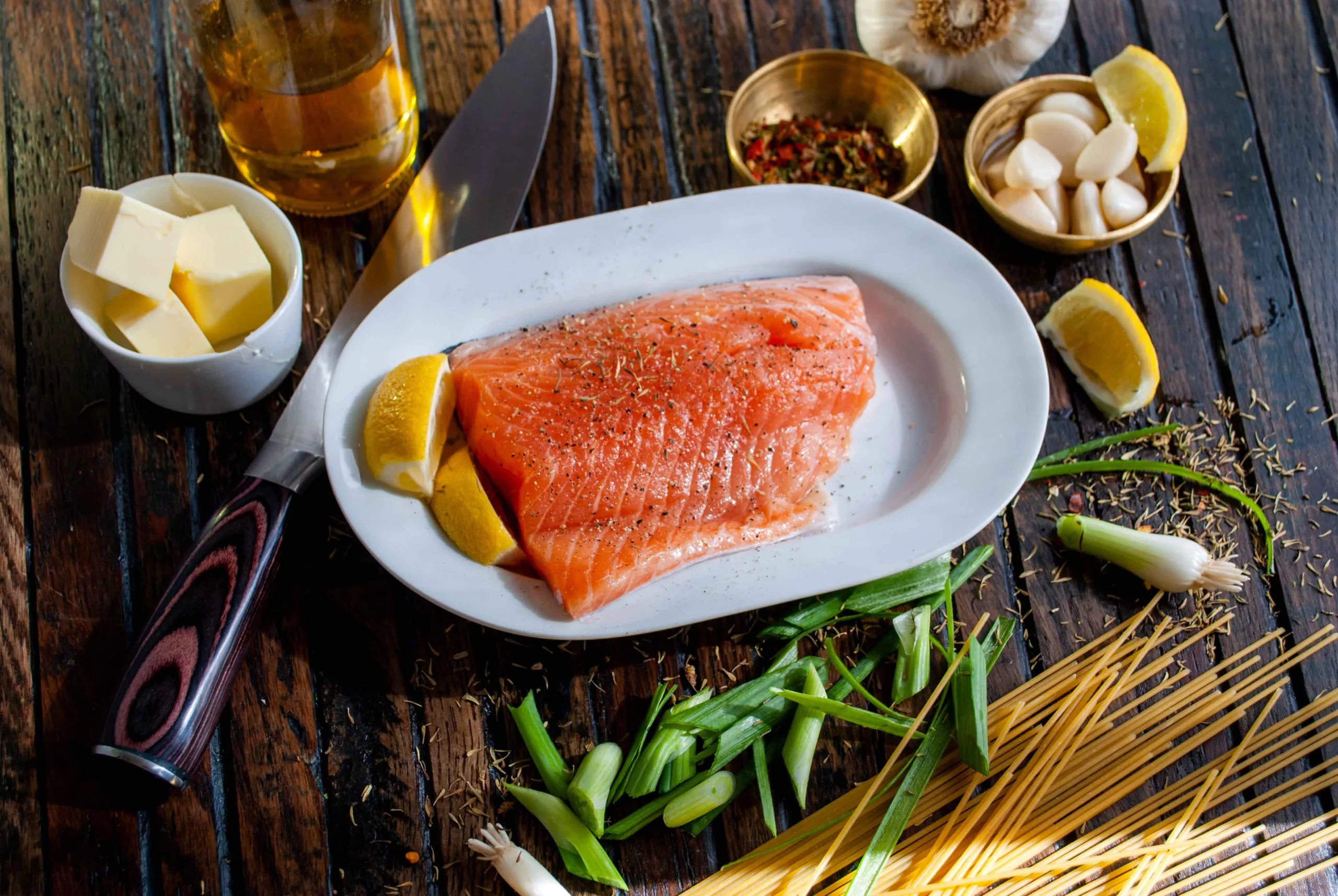Salmon is a delicious and nutritious fish that many humans enjoy. And it’s no wonder that dog owners might wonder if their canine companions can share in the delight. Smoked salmon, in particular, is a popular delicacy, but can dogs eat smoked salmon safely? In this article, we will explore the potential risks and benefits of feeding dogs smoked salmon. What to do if your dog ingests it accidentally, and whether raw smoked salmon poses additional concerns.
For more about dogs click here
Is Smoked Salmon OK for Dogs to Eat?
While small amounts of plain, cooked salmon can be a healthy treat for some dogs, smoked salmon should generally be avoided. The smoking process involves curing and preserving the fish with the use of salt, which can lead to high sodium content. Additionally, smoked salmon may contain added spices or flavorings, such as garlic or onion, which can be toxic to dogs.
Furthermore, smoked salmon is often served with a brine, which can increase the sodium content even further. High levels of sodium can be harmful to dogs, potentially leading to issues like sodium ion poisoning, which can cause vomiting, diarrhea, excessive thirst, and seizures.
For these reasons, it’s best to err on the side of caution and avoid feeding smoked salmon to dogs altogether.
What Should I Do If My Dog Ate Smoked Salmon?
If your dog ingests a small amount of smoked salmon or salmon that was not smoked with any harmful additives, they may not experience severe issues. However, if your dog consumes a significant amount of smoked salmon or exhibits any concerning symptoms after ingestion, it’s essential to seek immediate veterinary attention.
Contact your veterinarian right away if your dog shows signs of:
- Vomiting
- Diarrhea
- Lethargy
- Excessive Thirst or Urination
- Tremors or Seizures
Do not wait for symptoms to worsen, as prompt intervention can prevent complications and ensure your dog receives the necessary care.
Can I Feed My Dog Smoked Fish?
Feeding smoked fish to dogs is generally not recommended due to the aforementioned concerns with sodium content and potential added ingredients that may be harmful to dogs. If you want to share fish with your dog, it’s best to offer plain, cooked fish that has not been processed or seasoned. Fish like salmon can be a healthy addition to some dogs’ diets in moderation. As they are rich in omega-3 fatty acids, which can benefit skin, coat, and overall health.
Before introducing any new food into your dog’s diet, consult with your veterinarian to ensure it is safe and appropriate for your individual dog’s needs.
What If My Dog Ate Raw Smoked Salmon?
If your dog consumes raw smoked salmon, the same concerns regarding sodium content and potential additives apply. Additionally, raw fish carries the risk of transmitting parasites or bacteria, such as salmonella or listeria. Which can cause foodborne illnesses in dogs.
Raw fish, including raw smoked salmon, is not recommended for dogs, as it poses a higher risk of foodborne illness compared to properly cooked fish.
FAQs (Frequently Asked Questions)
1. Can dogs eat cooked salmon?
Yes, in moderation, some dogs can eat plain, cooked salmon. Cooked salmon can provide beneficial nutrients like omega-3 fatty acids, but it should be offered in small portions. And without any added seasonings or harmful ingredients.
2. What do I do if my dog ate salmon with onions or garlic?
If your dog ingests salmon that contains onions or garlic, contact your veterinarian immediately. Onions and garlic can be toxic to dogs and can cause serious health issues, including damage to red blood cells.
3. Can smoked salmon cause pancreatitis in dogs?
High-fat foods like smoked salmon can potentially trigger pancreatitis in some dogs, especially if consumed in large amounts.
4. Are there any health benefits to feeding dogs salmon?
Salmon is a good source of omega-3 fatty acids, which can benefit a dog’s skin, coat, and overall health. However, it should be fed in moderation and without any harmful additives.
5. How do I know if my dog is having an allergic reaction to salmon?
Signs of an allergic reaction in dogs can include itching, redness or swelling of the skin, hives, vomiting, diarrhea, or difficulty breathing. If you suspect your dog is having an allergic reaction, seek veterinary attention immediately.
In conclusion, while plain, cooked salmon can be a healthy treat for some dogs, smoked salmon should generally be avoided due to its high sodium content and potential harmful additives. If your dog ingests smoked salmon or exhibits any concerning symptoms, contact your veterinarian promptly for appropriate guidance and care. Remember that each dog is unique, and it’s crucial to consult with your veterinarian before introducing any new foods into your dog’s diet to ensure their safety and well-being.
Click here for more
